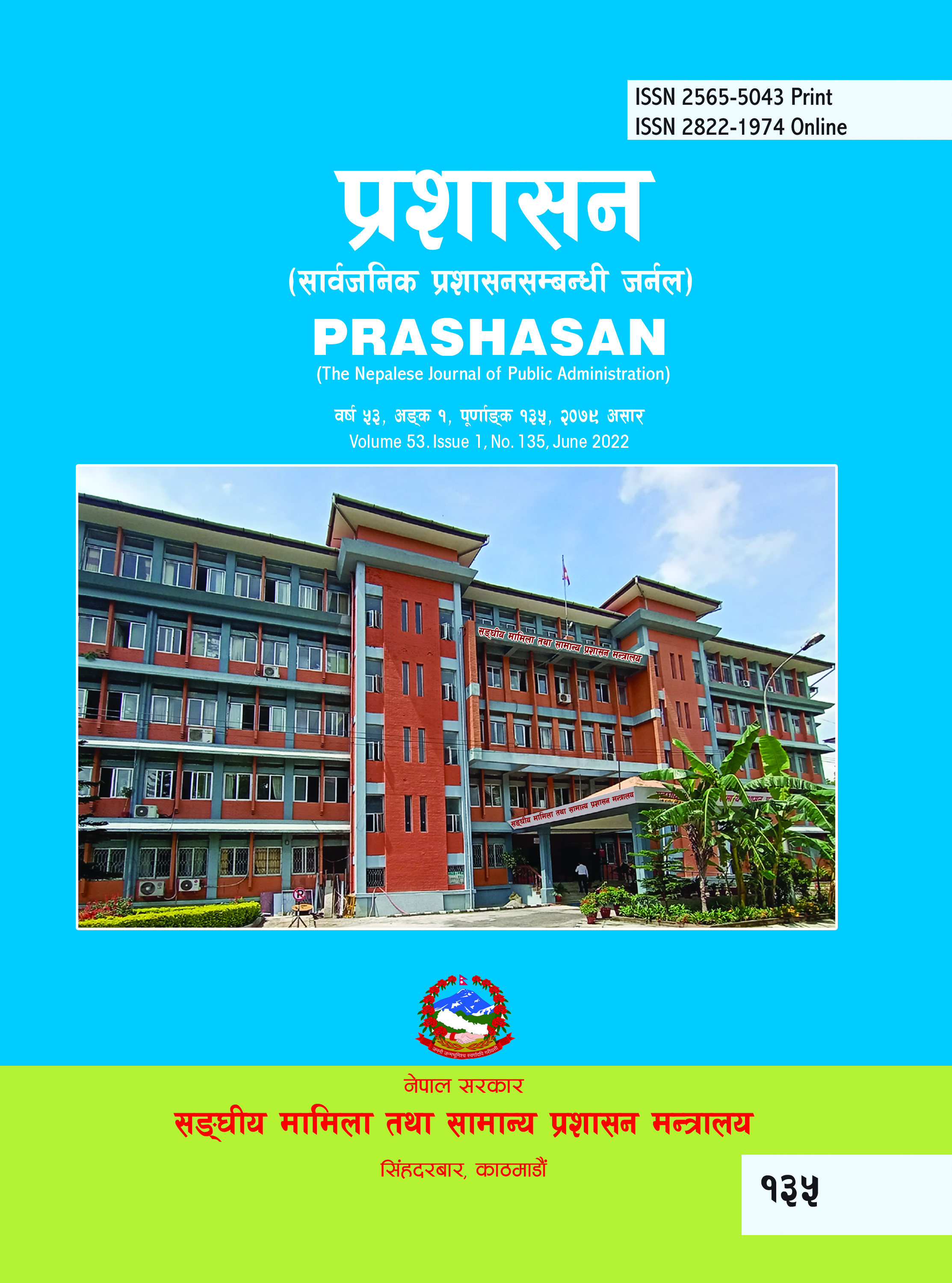Ways of Consensus Building for Income Tax Compliance in Cooperatives
DOI:
https://doi.org/10.3126/prashasan.v53i1.46329Keywords:
Cooperatives, Income tax compliance, Consensus buildingAbstract
Income tax compliance is a significant phenomenon in the tax administration in both developed and developing countries. Literatures stress on the consensual way of resolving disputes on tax policy process. By virtue of its identity, cooperative model of development is regarded as a pathway of establishing the equitable society based on social justice and personal dignity. The demand of setting a reasonable income tax has exposed a considerable debate in cooperative sector in Nepal. This study was carried out in order to find ways of building consensus for income tax policy process through a sample survey based on Israel (1992) in 100 savings and credit, multipurpose and consumer cooperatives in Kathmandu district and 25 policy makers, bureaucrats, cooperative leaders and professional as key informants. The district was supposed to be the most potential in terms of both tax contribution and evasion. The data were analyzed with qualitative method using descriptive statistical techniques in SPPS. The study found out the ways of consensus building for the full compliance of income tax through the fair service and consensual policy process that needs to be delivered by the government. The value based operation of the cooperatives needs to be carried out within the legal frame while contributing to increasing production, creating employment, and enhancing the quality of life. Therefore, it is suggested to both stakeholders for regularly interact to show mutual trust and flexibility while developing and pursuing the income tax compliance policy decently.
Downloads
Downloads
Published
How to Cite
Issue
Section
License
- The copyright of published materials of the journal remains with Ministry of Federal Affairs and General Administration.
- The published article cannot be reproduced or copied commercially by any person or institution but it can be used non-commercially for academic, research and training purpose providing proper citation is given.




